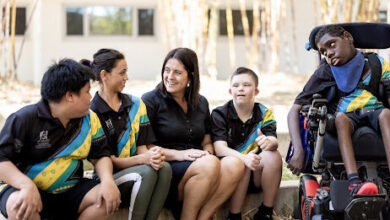Ministry pushes foreign recruits to fill teacher vacancies

Amid passionate deliberation over the looming teacher shortage, the Ministry of Education has declared that 550 overseas teachers are screened and ready for principals to fill vacancies in primary and secondary schools next year.
“Our recruitment drive to attract teachers to New Zealand is already helping to cover the extra 850 primary and secondary teachers we need for 2019,” says Ellen MacGregor-Reid, the Ministry of Education’s Deputy Secretary for Early Learning and Student Achievement.
“These overseas teachers are supplementing our locally trained workforce, while we continue to encourage more New Zealanders to train or return to teaching, and overseas Kiwis to come home to our classrooms,” she says.
“Our recruiters have received around 3000 applications from overseas teachers, with hundreds currently making their way through the recruitment pipeline. This is great news for principals as we support them to ensure they have a full staff for the start of term one.”
The overseas campaign is one of a range of recruitment initiatives to add to our pool of 70,000 teachers across 2,500 state or state-integrated primary and secondary schools.
Ms MacGregor-Reid says “every overseas teacher will meet all the existing standards here for teaching qualifications, registration with the Teaching Council, and immigration requirements. Principals only need to pick up the phone to our education recruiters, and they will match available teachers to vacancies.
“Although the number of vacancies being registered by principals is so far low, we’re delighted that 100 job offers have already been made to teachers coming from overseas. These include teachers from the United Kingdom, South Africa, the United States and Canada who will be working throughout the New Zealand – including primary teachers in low decile schools, and commerce and technology teachers for secondary schools in South Canterbury and South Auckland.”
“We have an even spread of primary and secondary teachers available, and most are happy to work in Auckland – which is one area where we know there are shortages.”
“These teachers will receive targeted support to transition to New Zealand. We’re working with the Teaching Council to strengthen training in our curriculum and the culturally responsive practices needed to work here.”
Meanwhile there are a couple of days to go for schools to apply for a National Beginning Teacher Induction Grant of $10,000 to help train or mentor a graduate teacher for next year. Priority will be given to low decile schools; those that are isolated or in locations experiencing teacher shortages; Māori-medium kura; and shortage subjects at secondary level, such as science, technology, engineering, mathematics and te reo Māori.
Ms MacGregor-Reid says nearly 100 applications have been received for the 230 new grants available, and she urges principals to register interest before applications close on November 16.
“We are keen to see more than the current level of 80 percent of teaching graduates getting jobs in schools – so these new teachers can make a start on their careers and contribute to our education workforce of the future.”










As a NZ teacher who has just completed the TER Refresh course, how will these teachers be equipped to teach the NZ Curriculum in a NZ context? I am surprised that I had to do the course when I have been teaching part-time for six years and have been fully involved in TAI and PD and they do not need to have any training. I nearly quit from stress due to having to complete this course while engaged in Teaching and Mentoring and teaching. NZ needs to look after its own teachers better.
I agree with Jeanette.
I have been a teacher for many many years. Due to an injury I had to take a break from teaching. I agree there needs to be some sort of updating of your knowledge to the current standards required. However, to have to do the intense and long TER course is beyond words. I am fortunate to have a funded place but, many that have gone before me have had to pay for the privilage to do this course.
Due to having to do this course I currently can only work as a teacher aid until the course is passed.
so, as I sit here tonight researching for yet another one of the 7 assignments required, I read this article.
Very dismayed that some teachers from overseas will not have to do this course, to up skill their knowledge of education and the Standards in Aotearoa New Zealand and work in alignment with how to apply the 3Ps in regards of the te Tiriti o Waitangi, if they have no understanding or knowledge of it. When there are many willing teachers out there wanting to come back to teaching but are facing hurdles placed in front of them. Please hear me right I am in no way against these teachers coming as they to will bring knowledge and qualities to our education system. But if there are rules for one and not the other there will be a lot of disgruntled teachers out there that may just change to another profession if the hurdles just keep coming.
I also would question how the TER course is presented from each of the providers of the course. How can there be a huge difference in the time length to complete the course, how different is the cousre content?
My course can take upto one year when others are just 12 -16 weeks.